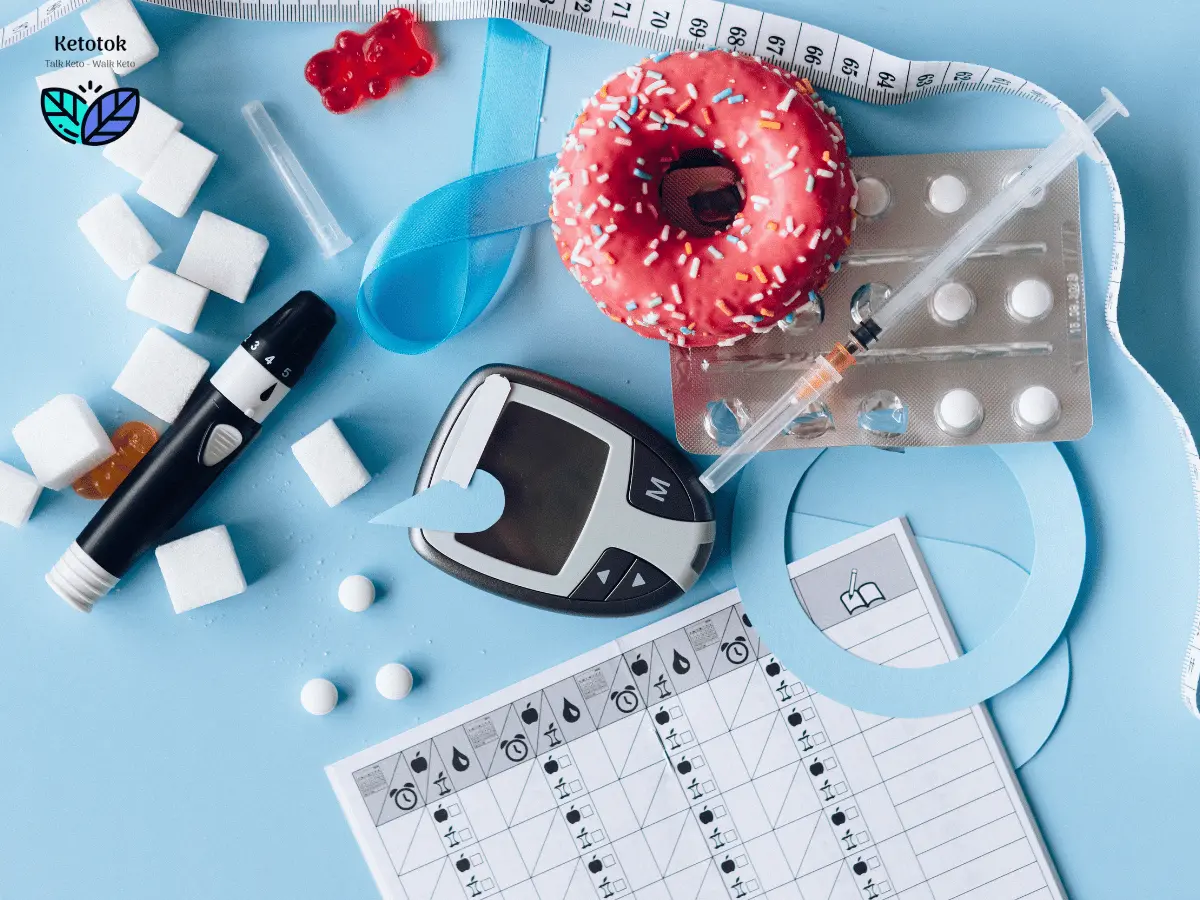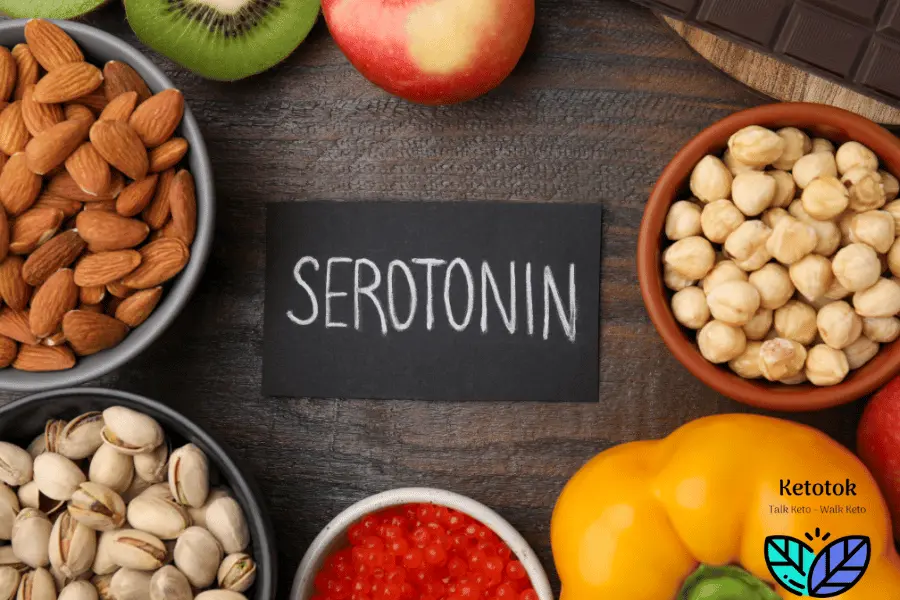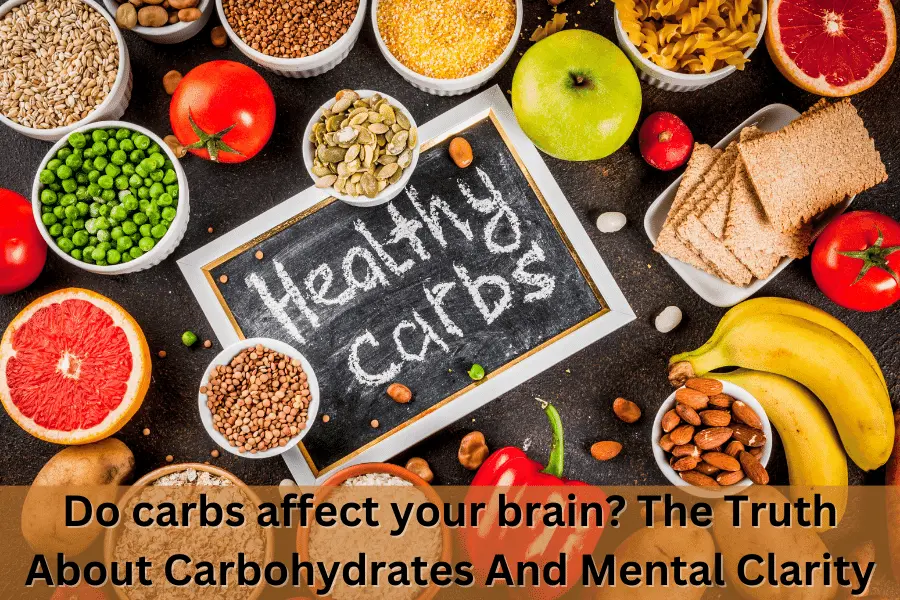Everyone loves to be physically fit and mentally active. But due to unbalanced diet plans and intake of harmful food, our body and brain often lack proper functionality.
Introduction
Nowadays mental health concerns are getting popularity as people are more likely to be victims of brain fog. Mental health experts advise low-carb diets like keto to overcome this common mental disease in a natural way. In this article, you will get knowledge about keto and brain fog.
Here we go!
Importance of nutrition in the brain health
Brain health is vital for our overall well-being, as it controls all brain activity and all our bodily functions including emotions, thoughts, and behaviors. Adequate nutrition is necessary to maintain brain needs and brain health. The ketonic diet is a very effective energy source to provide the necessary brain energy that supports the structure and functioning of the brain.
The rising popularity of the ketogenic diet for brain health
The keto may act as the best source to get maximum mental clarity as it helps to cope with mental fatigue. The ketogenic diet puts your body in a fat-burning mode and improves the body’s metabolism. In this state, mitochondria, which is known as the powerhouse of cells naturally increase energy production. A keto diet is a natural way to encourage this because your brain functions best when it has more mitochondria.
The brain contains a number of neurotransmitters, and when they are out of balance, your brain can feel a little cloudy. With the help of ketogenic food, you can help your body to naturally balance these neurotransmitters. A ketogenic diet typically helps your body to get rid of brain fog and makes it easier to concentrate, sleep, and avoid the mid-afternoon crash.
Understanding the Keto Diet and Brain Fog
Are you curious about the link of the keto diet with brain health and how this specific diet plan act as the potential energy source for both physical and mental health? Well, you are in the right place to gather information about this curiosity. Here I have come up with the answers to all your queries related to keto and brain fog.
What is a ketogenic or keto diet?
The keto diet is a high-fat and low-carb diet that is potentially used for weight loss concerns. But nowadays keto diet is gaining popularity for mental health purposes as well. The main goal of the keto diet is to switch the body’s metabolism from primarily using glucose (which comes from carbohydrates) to using ketones (which comes from fats) for energy. A ketogenic diet is also helpful to maintain blood sugar levels. When the body runs out of glucose as a result of limiting carbohydrate intake, it enters this metabolic state, known as ketosis.
The distribution of macronutrients in a typical ketogenic diet is as follows:
- Carbs: 5–10% of daily calorie intake.
- Fats: 70–80% of daily calorie intake
- Proteins: Twenty to twenty-five percent of daily calorie intake
Explaining brain fog and its symptoms
The term “brain fog” is used to describe a group of symptoms that have an adverse effect on one’s ability to concentrate, think clearly, and function cognitively. Confusion, mental exhaustion, forgetfulness, attention problems, and a general cloudy mental state are some of its symptoms. Although it can be a subjective experience brought on by a variety of factors, such as stress, lack of sleep, hormonal imbalances, or dietary decisions, brain fog is not a medical condition in and of itself.
While everyone occasionally experiences brain fog, it’s important to remember that persistent or severe symptoms may point to a more serious condition and necessitate a trip to the doctor.
Exploring the Keto Flu and Brain Fog
Apart from the benefits of ketogenic food for brain health it also causes flu-like symptoms and this condition is potentially known as keto flu. Here we explore the definition, causes, dangers, and symptoms of keto flu or keto induction.
What is the keto flu and when does it start?
When someone begins the keto diet, they may experience a number of symptoms known as the “keto flu.”. These are typically minor symptoms lasting a few days to a few weeks after the start of the keto diet.
The body experiences specific symptoms when it enters the ketosis state as it adjusts to using fewer carbohydrates in this state. Temporary imbalances in the body’s energy systems, insulin, and minerals are the cause of keto flu.
Duration and potential dangers of keto flu
Carbohydrates are considered as the body’s main energy source and during ketogenic dependence a person reduces the intake of carbohydrates. When there are not enough carbohydrates available for the body to use as fuel, the liver starts to make glucose from its reserves, and this process this known as glucogenesis.
The body’s need for energy will eventually exceed the liver’s capacity to produce glucose. Following that, a process known as ketogenesis will begin in the body to break down fatty acids and create ketone bodies. As a result, the body enters a state of ketosis and uses ketone bodies as fuel for body tissues.
The lack of carbohydrate intake leads to reduce insulin levels in the bloodstream which is dangerous for health.
Symptoms of ketogenic brain fog
People may feel the symptoms of keto flu after starting a ketogenic diet as their bodies tend to face an altered nutritious situation. A collection of symptoms of keto flu involve:
- Mental fatigue
- Nausea
- Headache
- Muscle cramps
- Constipation
- Bad breath
- Weakness
- Dizziness
Factors Influencing Keto Brain Fog
Here are the potential factors that influence keto brain fog:
Impact of falling blood glucose and insufficient ketone production
Low blood glucose is one of the potential sources of keto brain fog. Low blood glucose causes a fast heartbeat, shaking, sweating, nervousness or anxiety, irritability or confusion, dizziness, and Hunger.
Electrolyte imbalance, nutritional deficiencies, and hydration status
Electrolyte deficiency, nutritional imbalance, and dehydration are the potential causes of keto brain fog and they can also cause keto flu.
Benefits of Ketones for Brain Health
Ketones are used as a brain energy source in certain metabolism conditions. Ketone bodies may clear the fog of the brain. Here are some of the potential benefits of ketones in brain activities:
Ketones as a preferred fuel source for the brain
The brain works better for a longer period of time with ketone ester. It also has been demonstrated that, even in children, a month’s worth of ketone esters can reduce neurotoxins just like a full ketogenic diet.
Ketones are produced during the breakage of fats. As a result, the blood-brain barrier is permeable to ketones which leads the brain to use ketones as a major energy source. Another advantage of ketones is that they might be able to lessen inflammation in the brain. Dementia and neurodegenerative conditions like Alzheimer’s disease and Parkinson’s can both be accompanied by inflammation in the brain. It has also been connected to chronic traumatic encephalopathy (CTE) a condition brought on by repeated head trauma.
Additionally, it seems that ketones can encourage the production of brain-derived neurotrophic factor (BDNF), which could improve memory and learning. In this way, ketones can be helpful for mental clarity and cure brain fog.
Research on the effects of ketosis on brain function and metabolism
The brain primarily uses glucose for ATP production under normal physiological circumstances. However, in circumstances where glucose is scarce, e. g. Ketone bodies play a significant role as a source of brain energy during extended fasting.
Many dietary approaches, including ketogenic diets, consumption of ketogenic medium-chain fatty acids, or exogenous ketones, facilitate significant changes in the brain’s metabolism because the brain’s utilization of ketones appears to depend primarily on their concentration in the blood. Thus, these methods may improve the energy crisis in neurodegenerative diseases, which are characterized by a decline in the brain’s glucose metabolism, offering a therapeutic advantage in these conditions.
Practical Tips to Combat Keto Brain Fog
To avoid the drawbacks of the ketogenic diet you must consider the following tips:
Implementing the keto diet effectively
Consult your doctor before starting any new diet, especially if you have any medical conditions or take any medications that affect your blood sugar or mood, you should consult your doctor and get their approval.
To implement the keto diet successfully set your goals and track your health progress. You should have a clear idea of why you want to try keto and what you hope to achieve with it. For example, you may want to lose weight, improve your blood sugar control, or enhance your mental clarity.
Importance of electrolyte supplementation
Electrolyte supplements are effective to maintain blood pressure and acidity balance and hydrate the body. They are also helpful to control nerve and muscle activity, and aid in the healing of damaged tissue.
Addressing Common Concerns and Questions
Ketones for athletes and endurance sports
Ketone supplements help an athlete last longer during the performance of any physical activity before needing to refuel.
Side effects of the keto diet and managing them
Low blood pressure, kidney stones, constipation, nutrient deficiencies, and an increased risk of heart disease are all potential side effects of the keto diet.
You can overcome these ketogenic impacts by drinking more water, getting enough salt, increasing mineral intake, avoiding intense exercise, eating fiber, and intaking a low-carb diet.
Role of Ketones in brain diseases and cognitive decline
According to a number of researchers, In fact, functional cognitive decline and the emergence of diseases that impair cognition can be slowed down by ketogenic dietary interventions.
Exploring Other Diets and Brain Fog
Comparing the ketogenic and paleo diets for brain health
The paleo diet puts a strong emphasis on eating things available to early humans and exercising. The keto diet emphasizes cutting back on carbs. Although both diets are beneficial and have variations in results due to usage and consumer.
Personalized approaches to nutrition and brain fog management
Moreover, one can reduce brain fog and improve mental activity by opting for healthy habits and a nutritious diet plan. The personal check and balance of diet can effectively reduce the symptoms of brain fog and cognitive imbalances.
Conclusion
No doubt the ketogenic diet is helpful to improve the brain’s functionality and overall body health, but to avoid the negative impacts of the keto diet you must follow the right directions. you must consult your doctor before switching to the keto diet for mental clarity. To get the utmost benefits of the ketogenic diet, follow the correct way and maintain your nutritious balance.
FAQ’s:
Q. How long does keto fog last?
The symptoms of keto flu start dominating almost after two days of removing carbohydrates from your diet. For an average person, keto flu may last for a week or maybe up to one month.
Q. Why does keto help brain fog?
Low-carb diets like keto may help lessen instances of brain fog and support sustained cognitive function throughout the day by avoiding the blood sugar fluctuations frequently associated with high-carb diets.
Q. Why does my head feel weird on keto?
Due to extreme carb-cutting, a sudden drop appears in blood sugar causing the headache and a person may feel wooziness and nausea as well.
Q. Does keto affect your brain?
The Keto diet is mostly proven to be effective to control brain activity by improving brain clarity and cognitive levels.
Q. How do you get rid of keto fog?
Staying hydrated, getting enough rest, and replacing lost electrolytes can help you cope with keto fog.
Q. When does brain fog go away on keto?
On keto, the human body naturally balances the neurotransmitters that help to cure brain fog.
Q. How long does keto fatigue last?
It lasts for a few weeks.
Q. What are the hardest days of keto?
Mostly the first week of keto eating is the hardest time.
Q. Is it normal to feel weird on the keto diet?
In the first week or maybe the first month a person may feel weird and it is a totally normal thing.
Q. How do you get rid of brain fog on keto?
Switching to the keto diet helps to cope with brain fog.
Q. Can keto affect you mentally?
In the initial month of keto dieting, you can feel some mental disturbance.
Q. What are the negative effects of keto?
In the start, keto causes mental fatigue, nausea, constipation, vomiting, general weakness, and other minor health issues.
Q. Does your brain need carbs?
Carbs break down into glucose and the brain uses glucose as an energy source.
Q. Are you smarter on ketosis?
One can feel smarter while consuming the keto diet as this diet plan supports mental clarity and cognitive improvement.







